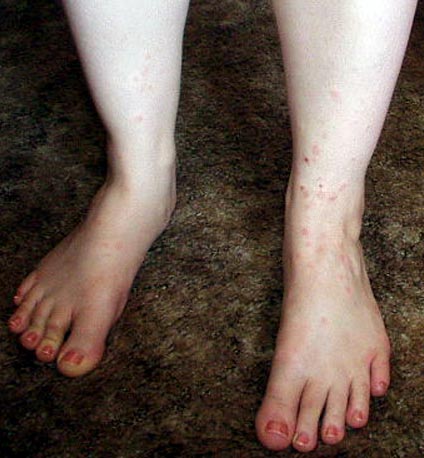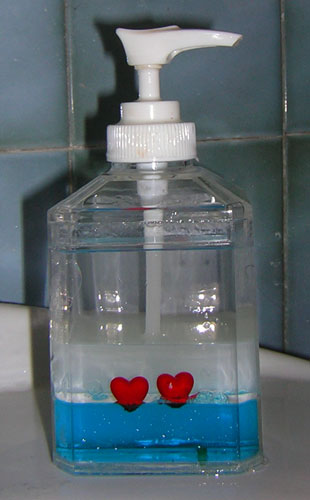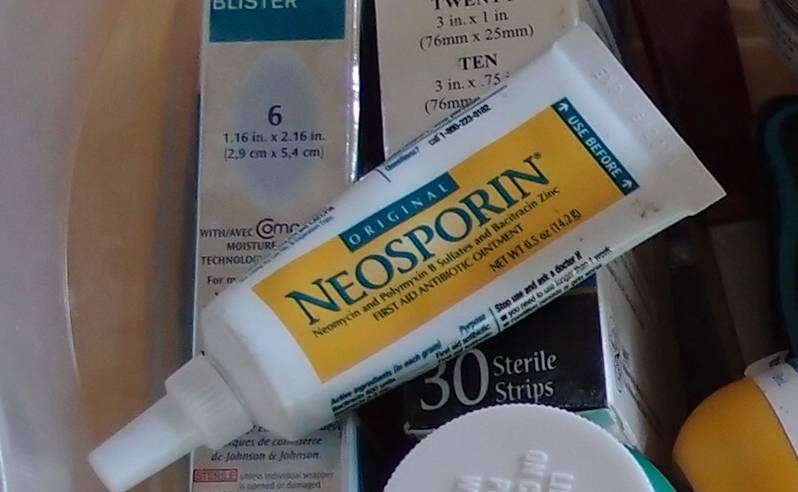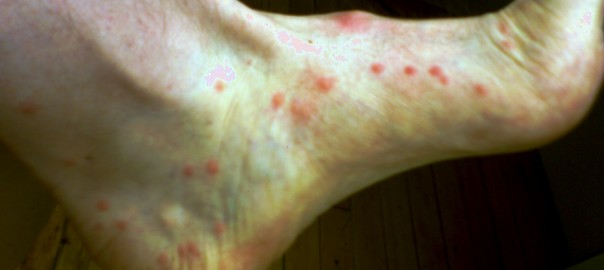Fleabites or Other Bites?
Handling a flea infestation is one thing, but preventing and treating fleabite son humans is another thing entirely. Not only are fleabites annoyingly unpleasant, but they can sometimes cause major illnesses, which is why it is so important to keep fleas at bay inside and outside of your home.
If you have a flea infestation, or got rid of them already and are dealing with fleabites, there are a few ways you can treat them and prevent future bites.
Make Sure You’re Treating Fleabites
You have to ensure that what you are treating is actually a fleabite. This is especially true since fleabites can be difficult to distinguish from other bite types. Mosquito bites appear similar, and feel similar.
Since mosquitoes and fleas use very different poisons to crate the itchiness of the bites, which requires different remedies to control the itch.

Fleabites on ankles by twelves
If you are dealing with fleabites then you will be seeing slightly raised hard red bites, usually in a row. For example, if you have a few bites but they are randomly placed, then it is more likely that you have a bite other than that of a flea.
Fleas typically bite in small areas and you will likely see a string of bites in a straight line. Though fleas can bite a human anywhere on the body, fleas typically bite the feet, ankles and lower calves. Fleas tend to bite as they are walking, which is what produces the line appearance.
No matter what type of bite you have, try as hard as you can to not scratch it, because scratching can lead to your damaging the skin, which leads to bleeding, scarring and – if you’ve broke the skin – extreme illnesses.
Because breaking the skin allows the flea’s blood to get inside, any illness the flea is carrying is transmitted with it.
If You Definitely Have a Fleabite…
…Treat it by washing the bite and surrounding area with regular soap and water.
Make sure to use cold water because it will help numb the area, while warm water tends to increase the itching sensation.

Soap and water by cuorhome
After drying the area, you can apply a cold pack to help reduce the swelling. The cold pack will also attribute to decreased itching sensation because of again numbing the site.
If the cold pack doesn’t reduce the swelling, or if swelling gets worse accompanied with reddening or what appears to be a rash, apply topical ointment, such as aloe or a calamine lotion.
Anything that contains the ingredient hydrocortisone will help reduce swelling as well.

Neosporin Hydrocortisone cream by papertygre
Important Health Warning
Please keep in mind that while rare, it is possible to be allergic to bites from fleas because of the venom they inject during the biting phase.
If at any time your redness and swelling is accompanied with shallow breathing or shortness of breath, or if your tongue or throat starts swelling, you need to call an ambulance or visit an emergency room immediately for the treatment of anaphylactic shock.
Anaphylaxis is the name of the reaction some people have when they are allergic to something.
Stay tuned for our next post in which we will cover how to prevent fleabites from occurring in the first place using various remedies.

